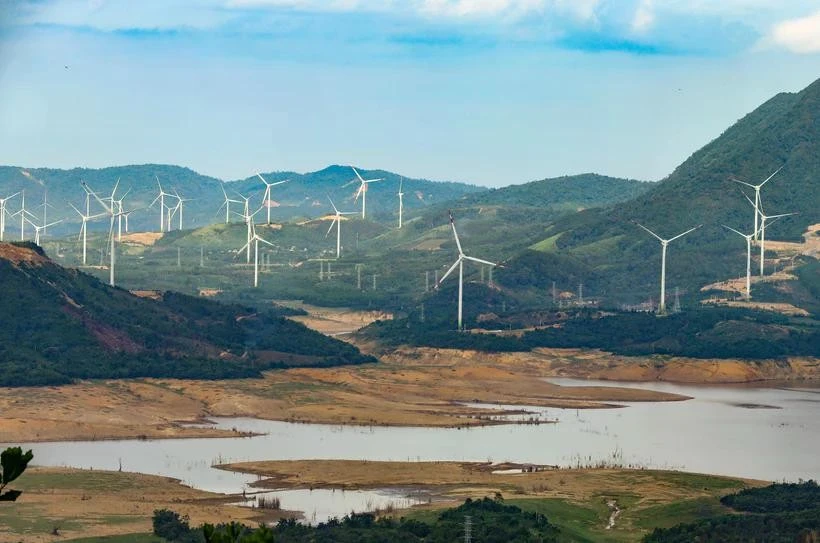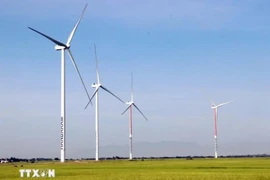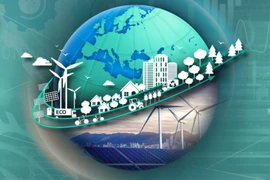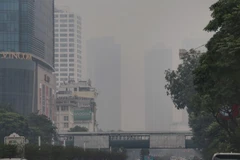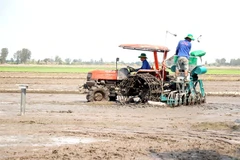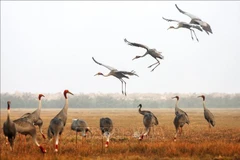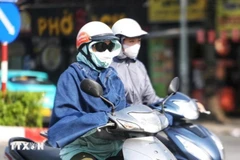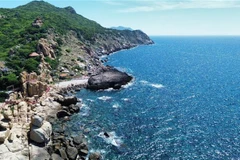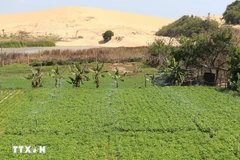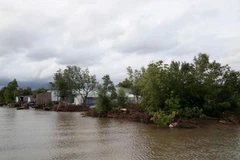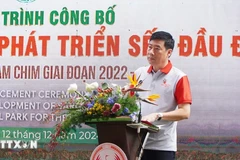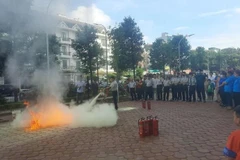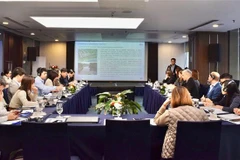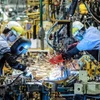Hanoi (VNA) – The Vietnamese government and businesses need to work together to build favourable legal frameworks to encourage more sustainable production and consumption models, said insiders.
Deputy Minister of Natural Resources and Environment Le Cong Thanh said Vietnam’s transition to a sustainable economy is not only an urgent task but also a strategic opportunity to enhance competitiveness, improve quality of life and protect the environment.
Addressing the 2024 Workers’ Forum for the Environment on December 12, Thanh said the country needs a comprehensive strategy that will involve inter-sectoral and inter-regional cooperation, promote innovation in production and foster a green and environmentally friendly economy with active participation from businesses, households, and individuals.
Encouraging green production models
Thanh underlined the necessity to prioritise policies promoting clean technology, renewable energy, and investment in environmentally friendly projects.
Attention should be paid to developing a circular economy by shifting from the conventional 'produce–consume–dispose' model to a 'reduce–reuse–recycle' approach, he stressed. The transition will not only minimise resource waste and environmental damage, and but also create added value for businesses and communities and improve competitiveness in the international arena.
In the roadmap for emissions reduction, efforts should focus on strictly controlling industries with high environmental pollution risks and promoting the transition to clean, environmentally friendly energy sources. Businesses must apply the best available technologies that do not emit greenhouse gases, Thanh noted.
“Turning waste into a resource for the country’s economic development requires robust waste segregation, the establishment of modern recycling facilities, and research and application of advanced waste treatment technologies,” he said.
He also highlighted the importance of education and raising community awareness of the role of each individual in emission reduction, saying that communication efforts to raise public awareness about environmental protection need to be performed in a widespread, long-term, and persistent manner.

The journey to achieve these goals requires the commitment and collaboration of all parties, from the Government, businesses, and social organisations to every citizen, Thanh said, stressing that the country needs a comprehensive strategy, as well as an unwavering innovation spirit, Thanh said.
Mechanisms for energy transition
Nguyen Tuan Quang, Deputy Director of the Department of Climate Change under the Ministry of Natural Resources and Environment, said achieving net-zero emissions by 2050 is an inevitable development goal.
Reducing greenhouse gas emissions and transitioning energy sources from fossil fuels to clean energy present opportunities to drive economic restructuring toward sustainability, he noted. The shift also capitalizes on opportunities to enhance the economy's competitiveness and leverage trade and investment cooperation for development.
Quang recommended several key solutions that Vietnam should prioritise, including finalising the institutional framework to support digital transformation, green transition, green growth, and development of a low-carbon economy. He also suggested attracting resources for green transition, promoting research and development of new technologies, and accelerating energy transition. Training and developing high-quality human resources capable of adopting new technologies will help to achieve the goals of green and just energy transition.
The State should continue to comprehensively improve mechanisms, policies, and legal documents to address obstacles and mobilise the participation of the entire society in fulfilling Vietnam's commitments at COP26, he said.
Ministries, sectors, and localities need to actively participate in implementing the transport sector’s action plan on green energy transition to reduce carbon and methane emissions, and the Prime Minister’s Decision No. 13/2024/QD-TTg dated August 13, 2024 on the updated list of sectors and facilities required to conduct greenhouse gas inventories; and developing the Vietnam’s Nationally Determined Contribution (NDC) for the 2025–2035 period, Quang stressed.
He also emphasised the necessity to mobilise international support for the country through bilateral and multilateral cooperation frameworks. This includes research on the experience and good practices of other countries in developing domestic regulations to promote conservation and energy transition, and effectively adapt to climate change.
Vietnam’s total greenhouse gas emissions are approximately 450 million tonnes of CO₂ equivalent, with the energy sector accounting for two-thirds or 280 million tonnes, according to the ministry. Within this, electricity generation contributes half or 140 million tonnes.
By 2050, renewable energy is projected to supply 67–71% of electricity, a substantial increase from the current 15%.
Simple actions like saving electricity and planting trees can contribute significantly to environmental protection, Quang said./.
